Google yourself. See that? It’s your personal brand. Unless you love
everything about each listing on the first page, it’s time for some
personal branding SEO.
There are two goals in personal SEO:
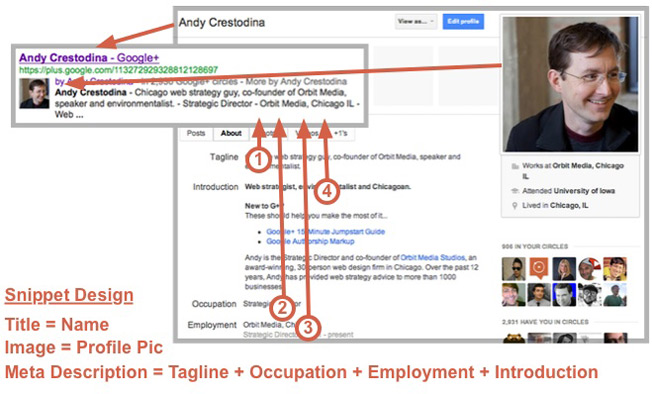
Start by optimizing the one profile that you know Google is indexing: your G+ profile. When you fill out your profile, you’re actually creating the snippet in Google. Here’s how your Google+ fields appear in search results as a snippet. Notice how the snippet text (meta description) is a combination of four fields, listed one after the other.
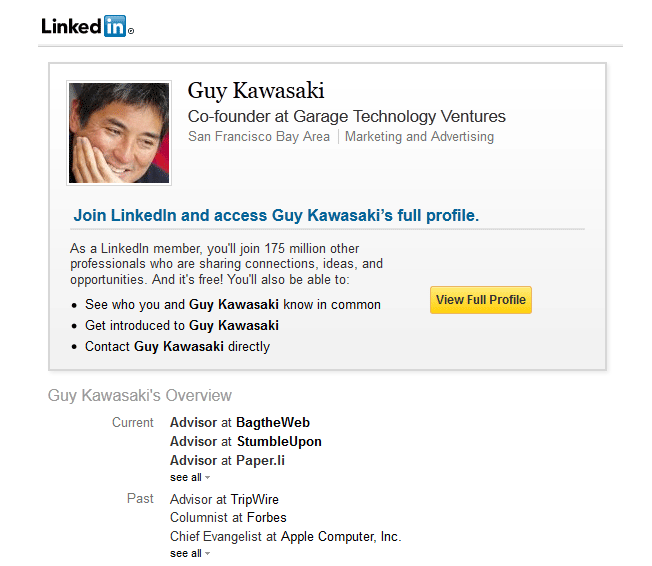
LinkedIn is ubiquitous in search results. Here’s how to polish this part of your personal SEO:
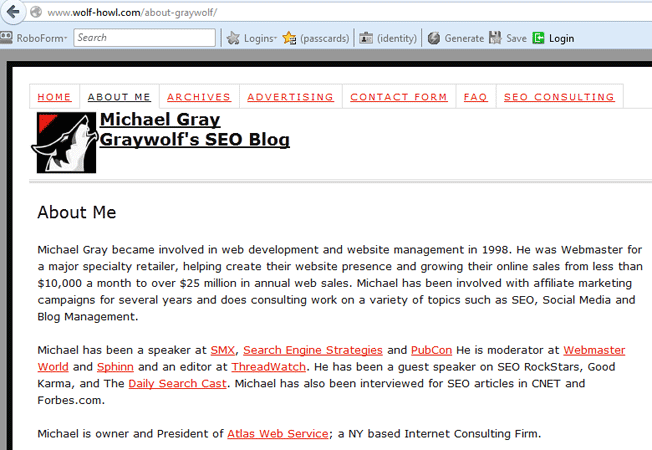
Unlike every other profile on this checklist, here you’re not building on rented land. You control it, so make it your masterpiece. Fine tune design, tweak on-page SEO, and use your best writing.

Thanks to Google Authorship and rich snippets, bloggers are taking personal branding SEO to the next level. The faces of some bloggers and guest bloggers appear in search results for hundreds of keyphrases. Do it for the clickthrough rates, do it for the traffic, and do it for your personal brand.
Tip! You don’t actually need to be active on a website to create a profile and affect your personal SEO. There is no reason not to use them all.
Caution: if you setup a hundred profiles, you’ll need to manage a hundred profiles, lest they go out of date. When setting up profiles on sites where you’re not likely to return often, avoid using numbers, such as “5 years of experience” or “50 successful projects.” By keeping the profiles more general, you reduce the risk of the profile going out of date quickly.
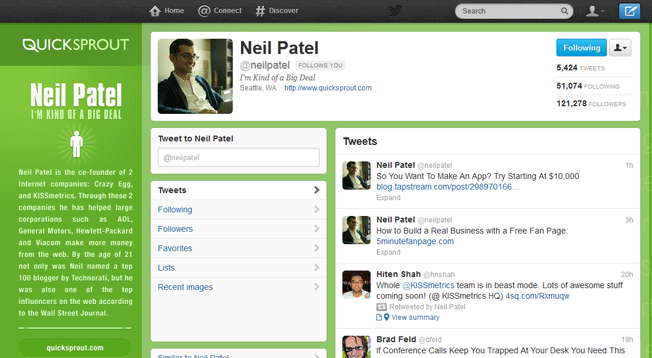
Twitter profiles still rank extremely high in Google. Get out your best profile picture, a short bio and a link to your website.
Even if you never use Twitter, add one tweet to tell people where to find you “I’m not active on Twitter, but feel free to connect with me on [other network]”
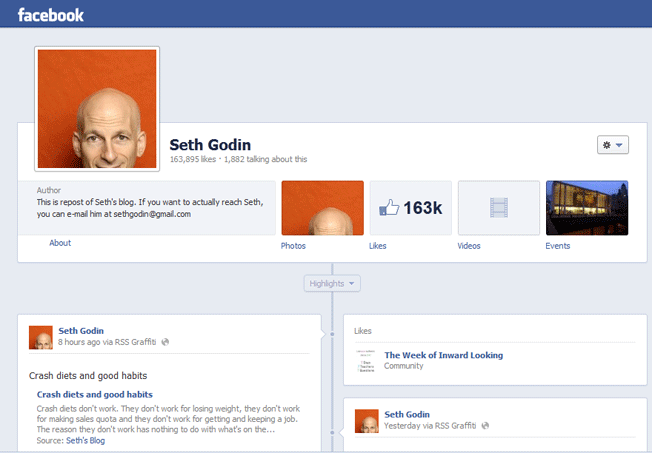
Facebook ranks high. Although your Facebook profile may not be relevant to your job, make your primary profile picture isn’t unprofessional. Depending on your privacy settings, a lot of people may see it. Also, claim your vanity URL.

Of all the video hosting/sharing sites, profile pages on Vimeo seem to outrank all others. Enter a bio, add a link, set your location, claim a URL and even add featured videos.
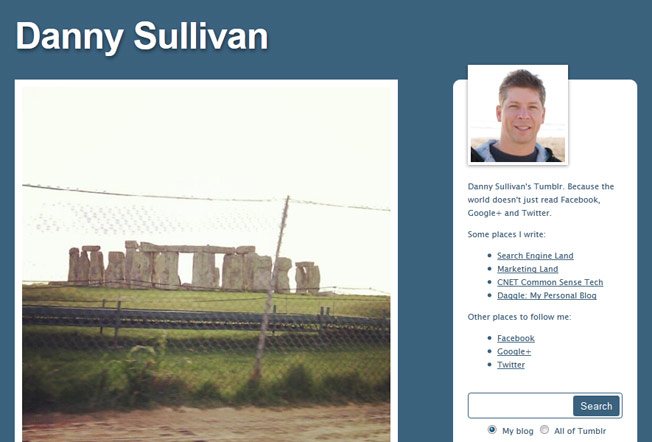
This one also ranks well. By default, Tumblr accounts are setup as subdomains, so grab yourname.tumblr.com, if possible. The bio page is open HTML so add anything and everything.
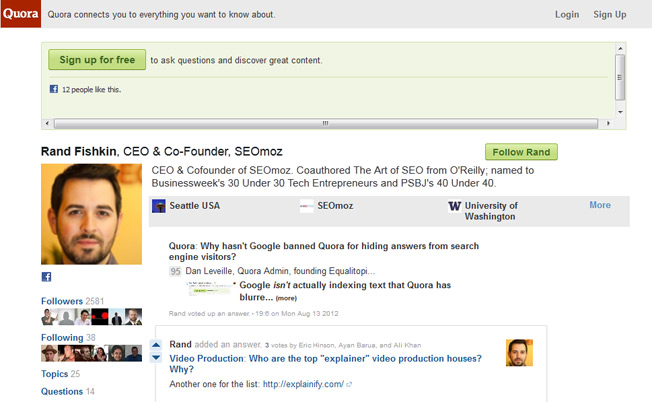
The profile pages are very simple, but they rank! After you add your picture and short bio, follow a few people and a few topics. Following topics will indicate to visitors what your interests are.
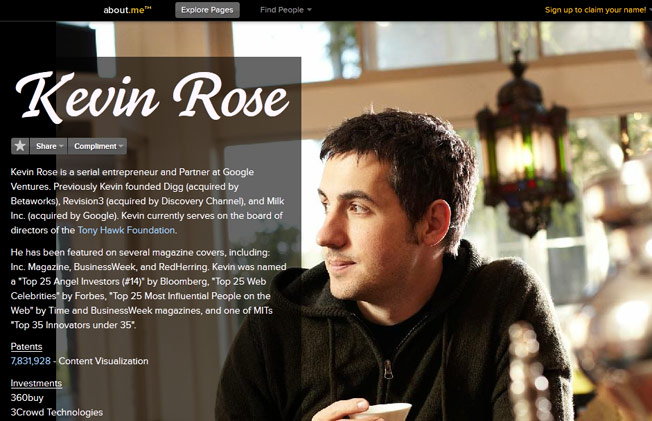
It’s just a simple page that links to your other profiles, but these show up in search results. Grab it. Upload a nice background photo and setup the links. If possible, use a URL that includes your name, such as about.me/yourname.
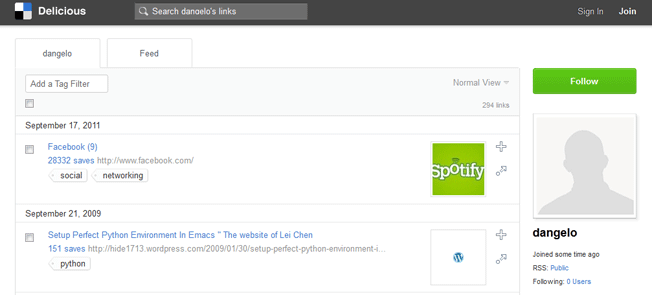
Create a simple profile that has a decent chance of ranking for your name. Not room for much more than a picture, short bio and link. Delicious will give you a shortcut URL, such as delicious.com/yourname, but once this is set, you can never change it.
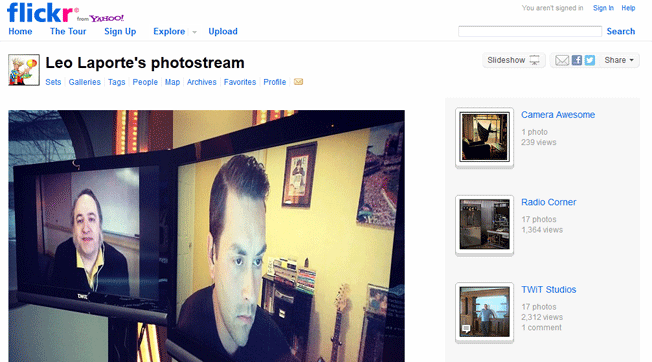
This is the only photo site that gets traction in SEO. Profiles include all the basic information, such as a profile picture, location, bio and link.

A profile here is more likely to rank toward the bottom of page one, but you can add a LOT to a SlideShare profile. First, set the Account Type. Now you’ll see all kinds of places to add relevant info. You can also add a visual theme to your profile for $19 per month, but don’t expect this to affect SEO.
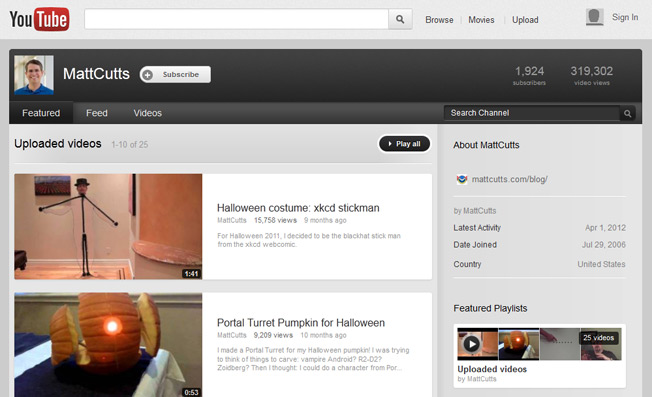
Create and upload a video of yourself stating your personal brand, and using your name in the title and the description. If you optimize a video for your name, you may see the video itself rank as a universal search result.
Did we leave something out? Let us know in the comments below.
About the Author: Andy Crestodina is the Strategic Director of Orbit Media, a web design company here in Chicago. You can find Andy on Google+ and Twitter.
There are two goals in personal SEO:
- Dominate the entire first page of Google (branding)
- Push negative or embarrassing search results off of page one (reputation management)
1. Design your snippet: Google+

Start by optimizing the one profile that you know Google is indexing: your G+ profile. When you fill out your profile, you’re actually creating the snippet in Google. Here’s how your Google+ fields appear in search results as a snippet. Notice how the snippet text (meta description) is a combination of four fields, listed one after the other.
- None of those four fields include your location, so if you want to be relevant in your local area, add your city or town to your employment field (i.e. “Orbit Media, Chicago, IL”).
- Use keywords relevant to your skills and personal brand.
2. Make your resume search-friendly: LinkedIn

LinkedIn is ubiquitous in search results. Here’s how to polish this part of your personal SEO:
- “Location,” “Position,” and “Company” appear in Google snippets. Make sure they’re complete.
- Click “edit” next to your public profile link.
- Customize your public profile URL. Pick a URL that includes your name.
- Make sure your entire profile is visible to the public.
- Make LinkedIn as complete as possible. Embed a WordPress blog, embed SlideShare slides, seek recommendations, add any active Twitter accounts, etc.
- In the “Websites” area of your profile, add links to your site, your blog, and your G+ profile.
3. It’s all about you, baby: your profile on your site

Unlike every other profile on this checklist, here you’re not building on rented land. You control it, so make it your masterpiece. Fine tune design, tweak on-page SEO, and use your best writing.
- Make sure your profile has its own page.
- Use your name in the URL if possible.
- Use your name in the beginning of the title if possible.
- Every profile should link to this page.
- This page should link only to current profiles and networks where you are active (these links can be “nofollow” and target=”_blank”).
- Link to your Google+ profile using the “rel=me” tag.
- Watch Analytics for this page to monitor search performance and referring sites.
4. Signed by the Author: Google Authorship

Thanks to Google Authorship and rich snippets, bloggers are taking personal branding SEO to the next level. The faces of some bloggers and guest bloggers appear in search results for hundreds of keyphrases. Do it for the clickthrough rates, do it for the traffic, and do it for your personal brand.
- If you’re not “signing” your content using “rel=author,” it’s time to start using Google Authorship Markup.
- Check the search performance of all of your articles by checking Author Stats. Log into Google Webmaster Tools using your Google+ login.
Tip! You don’t actually need to be active on a website to create a profile and affect your personal SEO. There is no reason not to use them all.
Caution: if you setup a hundred profiles, you’ll need to manage a hundred profiles, lest they go out of date. When setting up profiles on sites where you’re not likely to return often, avoid using numbers, such as “5 years of experience” or “50 successful projects.” By keeping the profiles more general, you reduce the risk of the profile going out of date quickly.
5. Twitter

Twitter profiles still rank extremely high in Google. Get out your best profile picture, a short bio and a link to your website.
Even if you never use Twitter, add one tweet to tell people where to find you “I’m not active on Twitter, but feel free to connect with me on [other network]”
6. Facebook

Facebook ranks high. Although your Facebook profile may not be relevant to your job, make your primary profile picture isn’t unprofessional. Depending on your privacy settings, a lot of people may see it. Also, claim your vanity URL.
7. Vimeo

Of all the video hosting/sharing sites, profile pages on Vimeo seem to outrank all others. Enter a bio, add a link, set your location, claim a URL and even add featured videos.
8. Tumblr

This one also ranks well. By default, Tumblr accounts are setup as subdomains, so grab yourname.tumblr.com, if possible. The bio page is open HTML so add anything and everything.
9. Quora

The profile pages are very simple, but they rank! After you add your picture and short bio, follow a few people and a few topics. Following topics will indicate to visitors what your interests are.
10. About.me

It’s just a simple page that links to your other profiles, but these show up in search results. Grab it. Upload a nice background photo and setup the links. If possible, use a URL that includes your name, such as about.me/yourname.
11. Delicious

Create a simple profile that has a decent chance of ranking for your name. Not room for much more than a picture, short bio and link. Delicious will give you a shortcut URL, such as delicious.com/yourname, but once this is set, you can never change it.
12. Flickr

This is the only photo site that gets traction in SEO. Profiles include all the basic information, such as a profile picture, location, bio and link.
13. SlideShare

A profile here is more likely to rank toward the bottom of page one, but you can add a LOT to a SlideShare profile. First, set the Account Type. Now you’ll see all kinds of places to add relevant info. You can also add a visual theme to your profile for $19 per month, but don’t expect this to affect SEO.
14. YouTube

Create and upload a video of yourself stating your personal brand, and using your name in the title and the description. If you optimize a video for your name, you may see the video itself rank as a universal search result.
Did we leave something out? Let us know in the comments below.
About the Author: Andy Crestodina is the Strategic Director of Orbit Media, a web design company here in Chicago. You can find Andy on Google+ and Twitter.


It's so informative,Many online marketers have got difficulty and also the with regards to SMO along with SEO, that doesn’t must be one an added.
ReplyDeleteSEO limited pertaining to search engine optimisation, which acts the web page pertaining to unique search engines to become enhanced for them to be found on the world wide web rapidly, a SEO blog seriously isn't generally to blame for the particular SEO, somewhat this can be the granted to the conditions. Thanks
ReplyDeleteGreat tips. Google Authorship has become a great way to increase click conversion in search results.
ReplyDelete